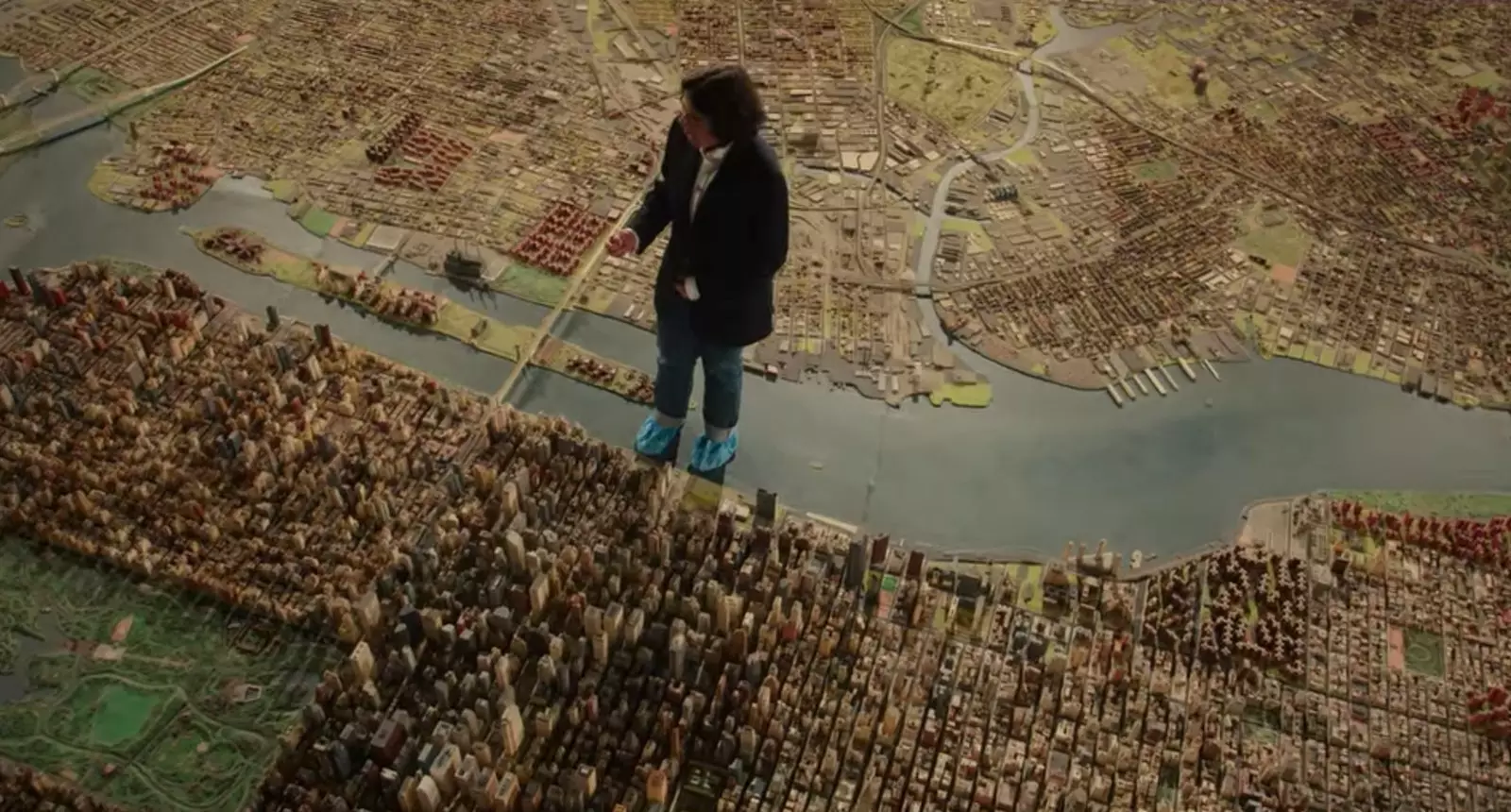
Lebowitz as Godzilla in the NY scale model at the Queens Museum.
"Fran, why do you still live in New York?" constantly ask the writer, essayist, comedian, professional commentator Fran Lebowitz, because her satirical criticism of the city in which she has been living for five decades is famous. To which she replies, "If you tell me where I'm going." If she knew where to go, she might just walk away. But how to get past the last bad real estate decision she made: an overpriced apartment with extra rooms to house? the more than ten thousand books of it. In one of the funny endings of the chapter (you have to watch until the end of the credits), in addition, she confesses to her friend, the director, Martin Scorsese, that she would probably not be allowed to live anywhere else, that wherever she was hers they would end up throwing her out.
Ten years after their first film together, Public Speaking, and following that format a bit, but divided into seven chapters, Fran Lebowitz and Martin Scorsese have gotten together again to talk about New York, sports, culture, life, to have a good time and make us have a good time. The title of the series Pretend It's a City (Pretend this is a city) is an also famous phrase of the author. Pretend this is a city when you walk down the street without looking where you're going, when you stop in the middle of the sidewalk to look at your mobile. According to Lebowitz, she is the only one watching where she is going. She helps that she doesn't have a cell phone, or a tablet, she doesn't even carry books when she goes out, she takes the subway or the bus, because the only thing that's still fun about New York, she says, is people-watching. That's why, "New York is never boring." You just have to look, observe.
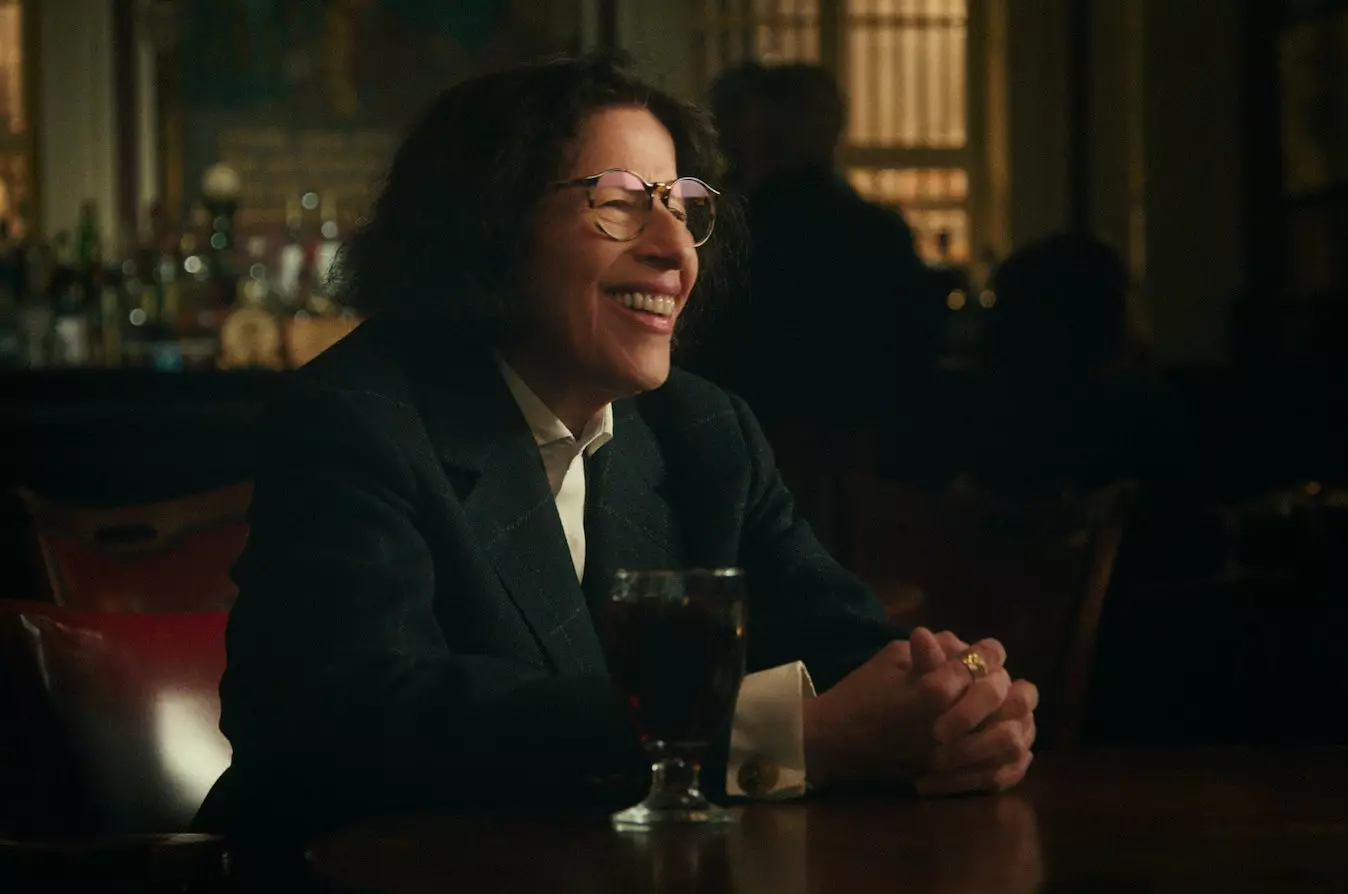
Fran Lebowitz and her smile.
Lebowitz doesn't stop looking, she looks at the faces of the other passers-by, those who annoyingly no longer dodge other passers-by, she looks at the shop windows, always in her fight to find the dry cleaner, she looks at the ground. “There are many things on the ground in New York”, she says she. She has advertisements, graffiti and many commemorative plaques, such as those of writers that surround the New York Public Library on Fifth Avenue.
“I am a fan of fun. I like parties".
Pretend It's a City is a detailed summary of the city's problems. Everyone she laughs at. It is not at all a nostalgic look at that New York of the 70s in which Lebowitz landed at the age of 18, yes, it may have been more fun, also more dirty and dangerous. If she misses something, it is to see the city papered with the newspapers that people constantly read and throw away. That and the origin of those papers, the 24-hour newsstand on Columbus Circle, today a bike rental shop.
If there is nostalgia in the series it is because she talks about a city and shows a pre-pandemic city, full of people, of tourists that Fran probably does not miss, but a city still with many businesses and where she could go out freely. Still, she's already seen so much change in a city she hates as much as she loves, that nothing surprises her anymore.
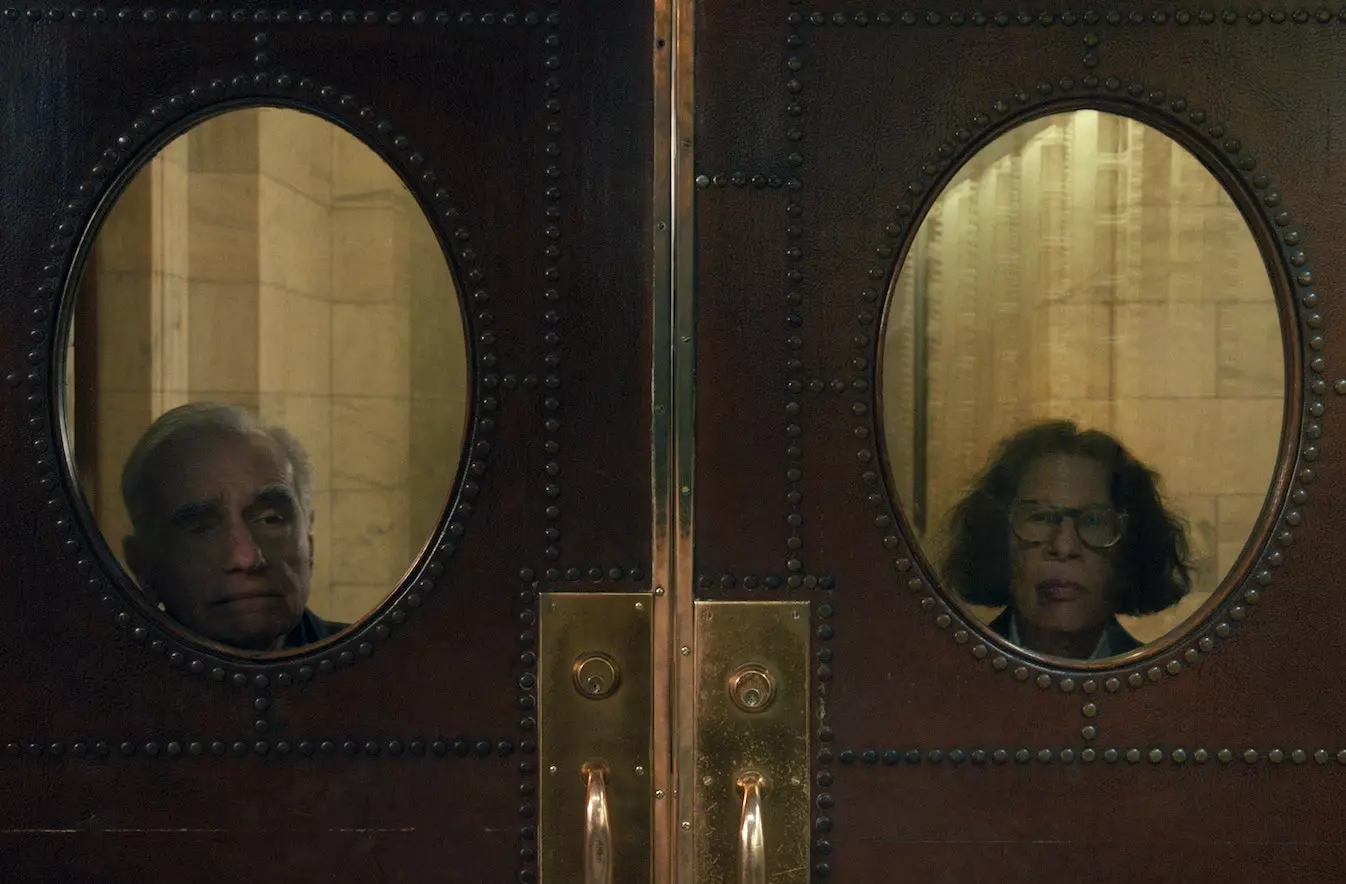
Scorsese and Lebowitz, two friends.
“New York was never particularly pretty. It was not Paris, nor Florence. At least it was an original city.”
But Lebowitz sees the good and bad of New York then and now. Now it's a city no one can afford to live in, she says, and it was then, too. Let them tell her and the string of crappy jobs that she chained: taxi driver, house cleaner... all to avoid being a waitress. Because being a waitress meant having to end up sleeping with the manager to get a new shift, she explains, and so she lashes out again at the world run by men. For which, among other things, soccer stadiums are given more importance (and they are paid with taxes) instead of operas or theaters. Her sports discussion with another filmmaker friend, Spike Lee, It's another great moment in the series.
Lebowitz messes with the new architecture in town. She loves Grand Central Station, the Chrysler ("It's the perfect size for a house"), but she hates all this new wave of skyscrapers on 57th Street that copy the style of the Gulf States. "Dubai copied New York and now we copy Dubai."
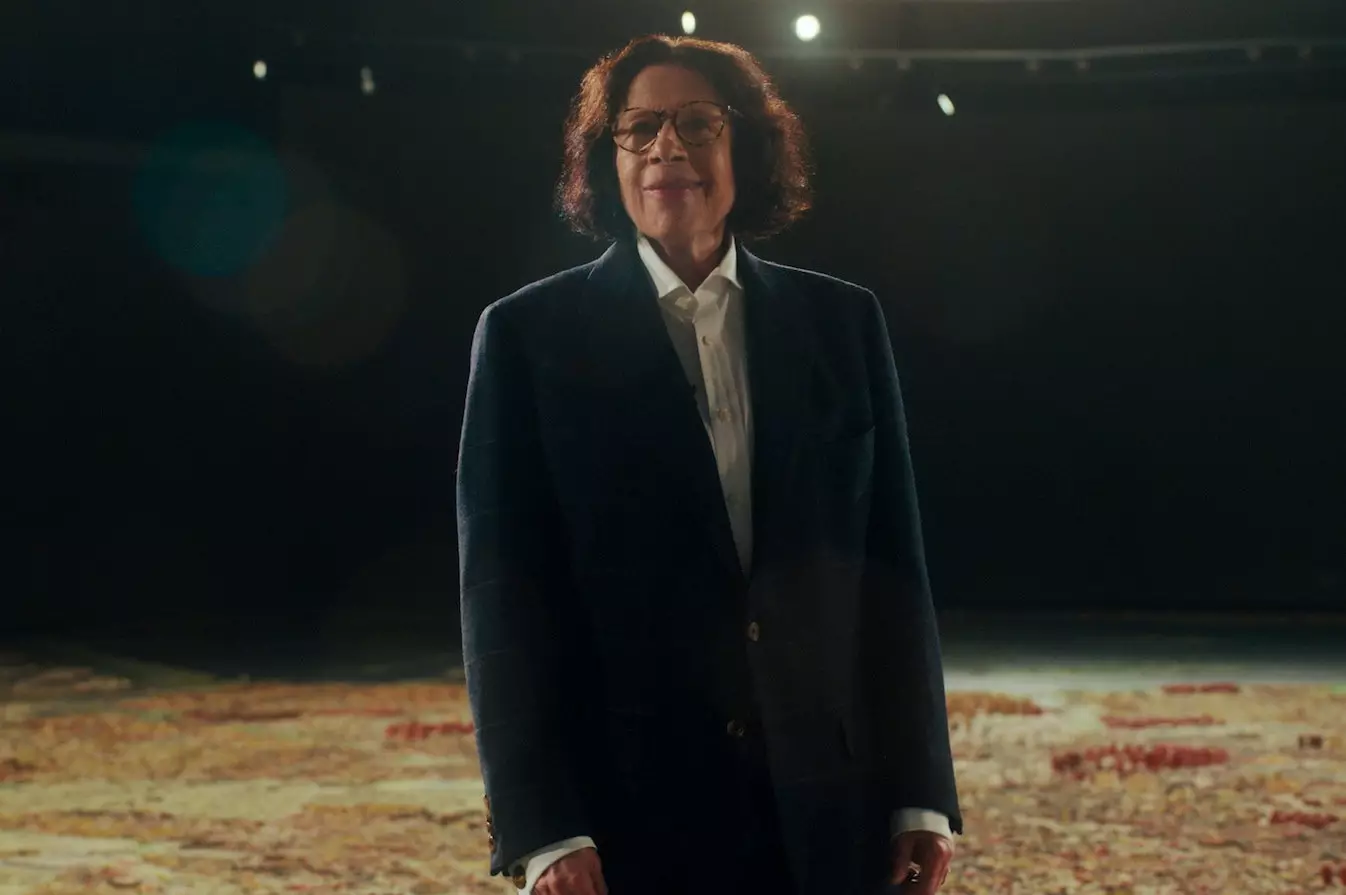
Think before you talk. Read before you think.
Although the great focus of her criticism is the transport network. The bus that you can only take if you are under eight years old “when you have plenty of time”. And especially the New York subway. The subway would be the first thing she would change if she were mayor, but mayor on night shift, she specifies. "The Dalai Lama would only need to take a subway ride to become a rabid person," he says. And while, all the time, Marty (Scorsese) next to him is dying of laughter. "I could be listening to what Fran thinks all day," the director of wow what a night –precisely, that film that Lebowitz blames for the wave of crazed taxi drivers that populated New York from then on–.
"Books are a way to be immensely rich."
Scorsese and Lebowitz discuss books and movies, sharing some of the titles they've seen or recommended. And, in addition to talk after talk, l The series follows Fran through the streets of New York, pouting at a group of crossfitters, those people who don't go away, or Times Square in general... and getting lost in her favorite places: the Argosy or Strand bookstores, the library of the Fifth… That place where they sell magnets with one of her most famous phrases, written in 1978: “Think before you speak. Read before you think” (Think before you speak. Read before you think.) "Half a sentence," she clarifies. The rest was a series of recommendations for young people, those who continue to approach him, bothering him on the streets with doubts that later give him many anecdotes. Like when they ask: "What advice would you give to a 20-something coming to New York?" "Bring money".
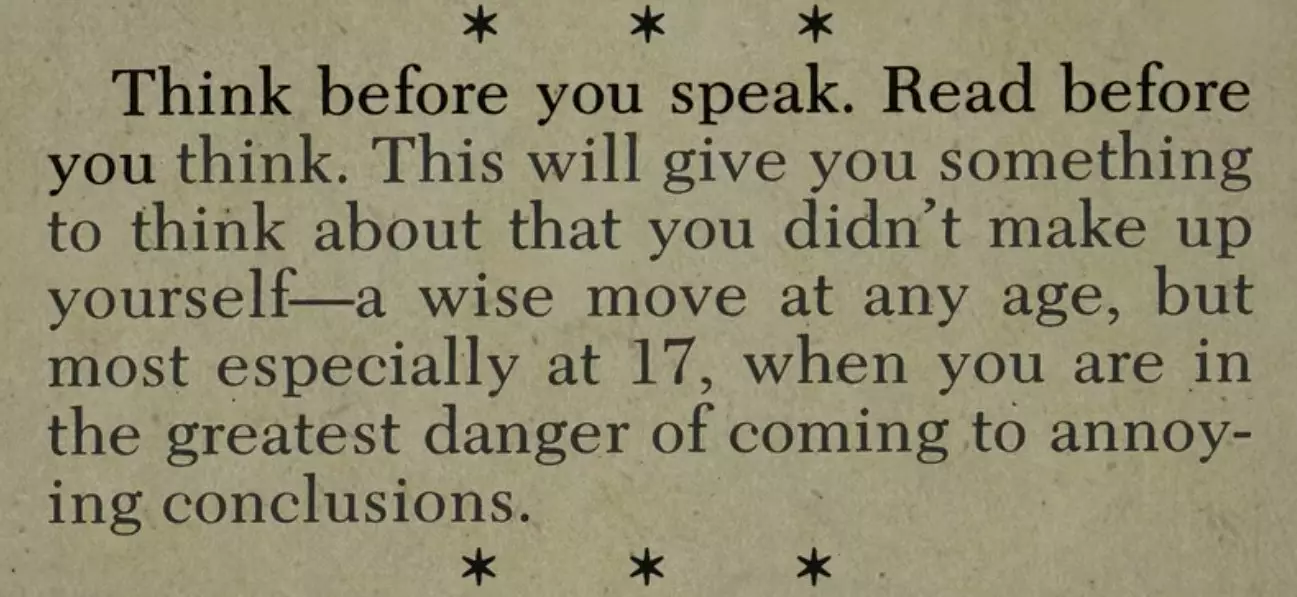
Think before you talk. Read before you think.
